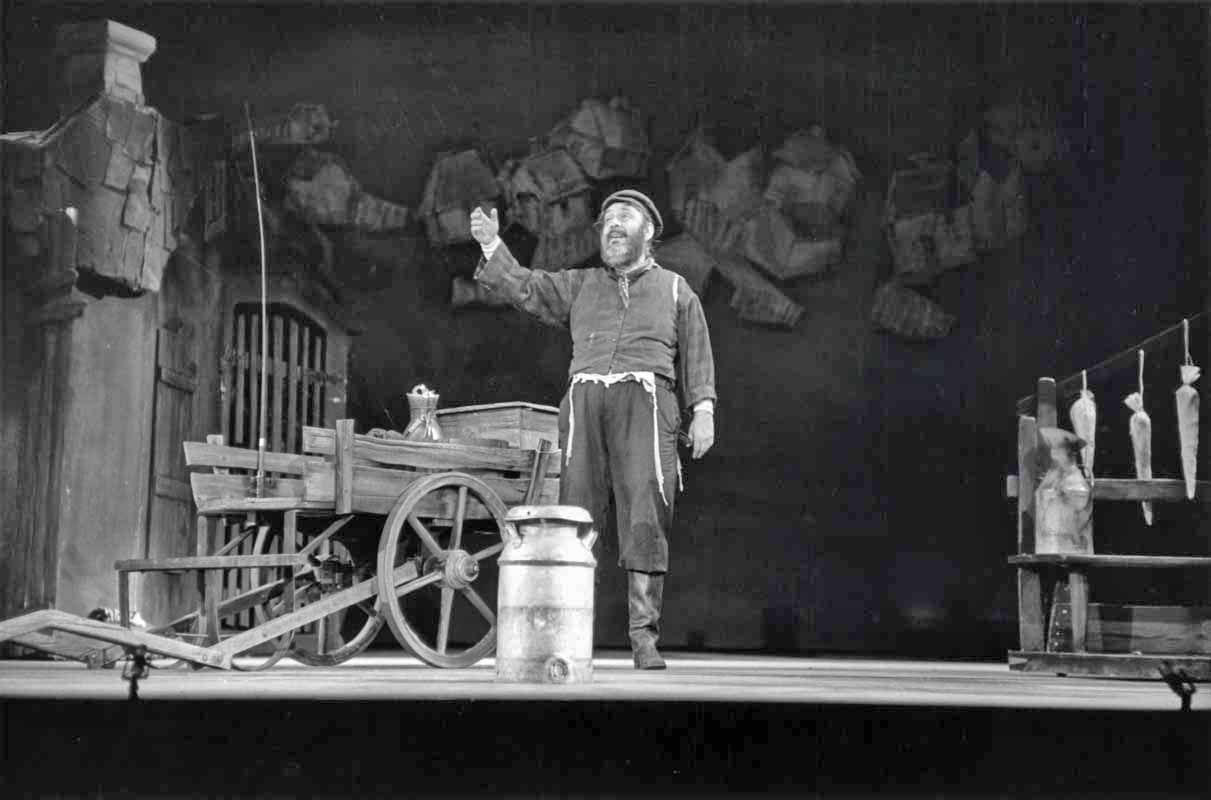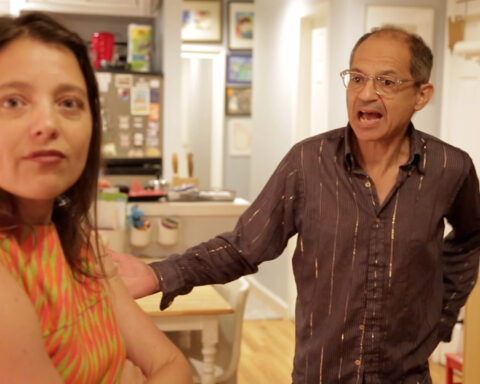In fifteen years Colombia has built a thriving film and television industry, making it and Bogotá in particular, the new hot spot in the Americas for filmmaking. 27 foreign-directed films were shot in Colombia between 2013 and 2018 including the number one most watched TV show in the world, Netflix’s hit drama series, Narcos. Benefiting from the growth of a highly skilled production industry, documentaries are also starting to blossom in Colombia. Between 2006 and 2016, Colombian filmmakers produced 48 documentaries.
While Canada has had an official coproduction treaty with Colombia since 2002, it has rarely been used, which is a missed opportunity for filmmakers in both countries. My father’s stories of growing up in Guyana lead me to travel extensively in South America and later make films in Guatemala and Argentina. I know there are incredible stories to be told not just in Colombia but across the region: stories that will speak to a Canadian as well as global audiences.
In early July I attended the annual Bogotá Audiovisual Market (BAM) for the first time to investigate opportunities for collaboration between Canadian and Colombian filmmakers. What I found was a sector well-practised in the art of coproduction and an incredibly diverse group of storytellers.
Organized by the Bogotá Chamber of Commerce and Proimagenes Colombia, BAM has been supporting the development of Colombian filmmakers for the past decade. Each year a cohort of Bammers is selected, young filmmakers aged 22-27, to workshop and pitch a project in development. This year was the market’s 10th anniversary and Hot Docs Director of Programming Shane Smith was one of a several festival programmers invited to participate. “I was impressed by the number of compelling stories, and the real enthusiasm to work with international partners,” remarked Smith. He noted Colombian filmmakers expressed a strong desire to have their work reach the international market place. “They were very eager to understand how to frame their stories for a global audience.”
Smith highlighted a Colombian documentary which he thought took a fresh, unexpected approach, one that he hopes will connect with international audiences. The producer Joaquín Uribe describes his film Suspension as “an ethnographic exploration of a never-ending road project in Colombia’s Amazon piedmont. The project itself is at the centre of a long history of struggle to defeat the impossible topography of the Andes. My intention is to situate the infrastructure at the centre of a drama where humans gravitate around overwhelming and unpredictable forces: an elusive state, precipitous roads, mudslides, torrential rains and volatile rivers. By focusing on the contradictory feelings and impacts that this project creates, the film captures a world in a state of suspension.”
Few Colombian documentaries have broken through to the international market. This is the second year that Juan Baquero, a former Hot Docs international programmer, has ran a pre-BAM workshop for Colombian filmmakers, helping them to package their stories for foreign producers, funders and programmers. A Colombian-Canadian who splits his time between both countries, Baquero is uniquely equipped to run this program. “Last year all ten of the filmmakers who came through the workshop were awarded pitch prizes at BAM. We’re hoping to repeat that again this year.” A former journalist in Colombia, Baquero experienced firsthand the country’s storied past living through and reporting on Colombia’s protracted civil war. “There are amazing stories here and very talented people to tell them. I want to help filmmakers pitch their films in a way that they connect with people from other countries.”
One of the filmmakers Baquero mentored this year at BAM is Maria Paula Ávila Vera. An anthropologist, who worked as a researcher in Colombia’s film industry, Vera got the idea for her first documentary feature, Miembros, from the set of Narcos. “I learned that ex-military, who had fought for decades against the FARC [Revolutionary Armed Forces of Colombia], were re-enacting their battles and injuries as extras.” She confessed her first thought was that this would be traumatic for the ex-soldiers, but after talking to them, she realized they were nostalgic for the war. “It was a part of their life that they just couldn’t leave behind,” said Vera. “This experience made me question my own attitude toward the war and what this history means for our entire country.” Vera describes her documentary as a dark comedy, in which the war never ends for its four protagonists.
Like many of the projects I discovered in Colombia, Miembros is a coproduction with Europe. To date most Colombian documentary filmmakers have partnered with German, French and Italian producers, likely due to the European migrations to Colombia over the last three hundred years. But Canadians also have a cultural connection to Colombia with nearly 100,000 Colombians living across Canada. We benefit from fewer logistical barriers given Colombia’s shared time zone with parts of Canada and direct flights from Toronto and Montreal to Bogotá .
While many of the Colombian documentary filmmakers at BAM were emerging, there were also seasoned filmmakers who have premiered at IDFA, Sheffield and DOK Leipzig. Nicolás van Hemelryck and his partner Clare Weiskopf, who own Casatarántula in Bogotá, are in pre-production on their third feature documentary. Their first film _Amazona_, is a deeply personal film, in which director Weiskopf challenges her mother’s decision to abandon her and her siblings as adolescents, and in the process opens a fascinating dialogue about sacrifice, guilt and self-determination. _Amazona_ premiered at IDFA in 2016 and had its North American premiere at DOC NYC.
Their new film Fuertes/Strong tackles similar themes in a Bogotá boarding school, where teenage girls who once lived on the streets try to rebuild their lives. In the documentary, the filmmakers work with four of the girls to create a fictional character, Alice, a classmate who has decided to escape from the boarding school. One by one, the girls narrate the story of Alice’s life, projecting themselves onto her: their suffering and their dreams, loading the character with all that they were and what they hope to be.
“Aside from protecting the girls, this fiction allows us to move beyond their biographies, creatively revealing something profound, their self-image, and opening the door to reflection. As each one imagines how Alice’s story will end, she expresses her own survival techniques and the difficulties she imagines that fate has in store for her,” explained producer Hemelryck.
Hemelryck and Weiskopf’s film is a great example of the metaphorical storytelling that is a hallmark of Latin American cinema. The filmmaking partners are looking for an international co-producer for Fuertes, and so far have discussed the project with one Canadian producer. Casatarántula’s documentary co-production budgets have ranged between $200,000 to $400,000 USD. There are limited funds available for documentary filmmaking in Colombia, but Hemelryck has been awarded the Proimagenes documentary fund five times, and has worked with Signal Colombia the country’s public broadcaster. They are also experienced coproducers having partnered with the US and France on their last two films.
While Colombia’s film industry boom is the direct result of the most generous tax incentives in Latin America, unfortunately the same incentives don’t work as well for documentary. Since 2012, the Colombian government has offered foreign production companies shooting in Colombia up to 40% cash rebates, but to qualify, international producers must spend at least $500,000 USD in the country. This minimum puts the cash rebate out of reach for most documentary filmmakers. There is another generous tax incentive that Hemelryck is trying to tap that offers a 165% income tax deduction for third-party investments into film projects.
Jaime Escallón of Lulofilms probably knows more about the ins and outs of co-producing with Colombia than anyone else in Canada. With offices in Toronto and Bogotá, Escallón has brokered several coproduction deals between Canada and Latin America for shorts, features and series – scripted and documentary. Canada has been both a major and minor partner in his co-productions and often there has been a third international partner with Brazil or Mexico to make up for the smaller amount of funding available for documentary in Colombia. Escallón was quick to point out that funding goes twice as far in Colombia than in Canada. “The day rate for most creatives in Colombia is half of what it is in Canada. It’s a consideration when you’re choosing your cinematographer and deciding where to edit.”
After talking to Jaime Escallón for ninety minutes, there were two pieces of advice that stuck with me: choose to coproduce for the story not the money, and know that there are cultural differences in how we tell stories.
“Before the partner I always try to look for the story and then you find the partner,” stressed Escallón. He said that almost every year he embarks on a project before it is fully financed. “Labours of love are an important component of building your reputation and your career.”
He also offered this nugget about Colombia for Canadians looking to co-produce there. “Colombia is very influenced by French, German and Italian art theory and philosophy, where your discourse doesn’t have to be so regimented. So, yes, you learn to do beginning, middle and end because form really matters in a society like this one [Canada]. It’s sort of the Anglo-Saxon way of telling stories. Some of that is good and effective but in Latin America there’s room for a more organic approach to storytelling, because that’s how you live there, that’s how you survive there. It’s that spontaneity, without it necessarily being ‘magical realism’, because those are our actual challenges. Magical realism is not a cool thing to live through, but we bring that sensibility to our storytelling.”
Escallón plans to release his latest documentary co-production _Rebel Love_, a love story about two former FARC combatants trying to reintegrate into society, in Spring 2020.
Read more about BAM in this report on the new media stream.











